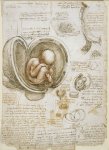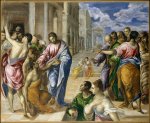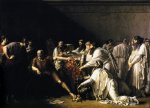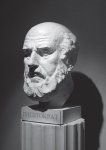Article (Mirabilia MedTrans)
-
The victorious life and the disenchanted end of the great Macedonian conqueror Alexander the Great and the novelesque knight Tirant lo Blanc
Anastasia TERZOPOULOU
Original title: La vida victoriosa y el final desencantado del gran conquistador macedonio Alejandro Magno y del caballero novelesco Tirant lo Blanc
Published in
The aim of this article is not to analyze the details of the life of Tirant lo Blanc, a literary figure from the Valencian Golden Age, and Alexander the Great, King of Macedonia, a real historical person of Ancient Greece; but to expose the common features that life presents and, above all, the early, bitter, and unexpected end of two great warriors and military strategists.
-
The analysis of the “other”: the Saracens in the city of Valencia in the second half of the XV century
Alejandro MORENO GIRONÉS
Original title: El análisis del “otro”: los sarracenos en la ciudad de Valencia en la segunda mitad del siglo XV
Published in
This article aims to address the vision and perception that a specific type of vassals is generated: the Saracens. The fact that we will take as a reference to be able to carry out our objective will be the assault on the Moorish quarter of Valencia in 1455. The documentation generated after this fact will allow us to analyse each of the social classes involved to be able to approach the construction of the “other”.
Issue (Mirabilia Medicinæ)
-
-
Medical Humanities: Art and Life
Organized by Hélio ANGOTTI NETO (org.)
Mirabilia Medicinae 10 (2018/1)

-
-
Qualification of the Medical Teacher
Organized by Hélio ANGOTTI-NETO (org.)
Mirabilia Medicinae 11 (2018/2)

Article (Mirabilia Medicinæ)
-
The contribution of PRIME for humanizing healthcare in Mozambique
Jorge CRUZ, Luciana FERNANDES, Celso BELO
Original title: O contributo da PRIME para a humanização dos cuidados de saúde em Moçambique
Published in
Humanization must be one of the priorities of healthcare worldwide. The authors present the contribution of the association PRIME – Partnerships in International Medical Education – for the humanization of healthcare in Mozambique since 2009 through courses on medical and nursing schools.
-
Pedro Fontes, the physician who discovered leprosy in Espírito Santo Province, Brasil
Patrícia D. DEPS, Rachel Bertolani do Espírito SANTO, Francisco E. Simão MERÇON
Original title: Pedro Fontes, o médico que descobriu a hanseníase no Estado do Espírito Santo, Brasil
Published in
This biographical article deals with the figure of Pedro Fontes, a physician graduated in 1903 by the Faculdade de Medicina da Bahia, who came to the State of Espírito Santo in 1927 with the mission of evaluating the possible existence of people affected by leprosy in the State. After a few months of work all over the state, Pedro Fontes identified a large number of people affected by leprosy and triggered the local health authorities, alerting the need for a specific place for isolation and treatment of patients. Pedro Fontes participated actively, being a mentor with Dr. Heráclito Souza-Araújo, of the creation and construction of the Colony of Itanhenga, inaugurated in 1937, later becoming the Colony Hospital Pedro Fontes, institution responsible for housing people affected by leprosy that were hospitalized compulsorily until the middle 1960's.
-
Organ Procurement Initiatives and the Sacredness of Human Life: A Christian Perspective
Allan H. ROBERTS II
Original title: Iniciativas de Obtenção de Órgãos e Santidade da Vida Humana: Uma Perspectiva Cristã
Published in
The practice of organ procurement for transplantation is deeply engrained in the consciousness of the public worldwide, and is endorsed by most religions including Christianity. With the advent of the life-saving successes of organ transplantation have come a number of ethical issues, including those concerning efforts to balance the needs of potential organ recipients with those of possible organ donors. In this paper, I endorse current organ procurement procedures; I then describe several changes to current practice that have been suggested. I contend that each of these proposed innovations creates an imbalance regarding the Christian tenet of the absolute sacredness of all persons.
-
René Favaloro, the Idealist
José Guilherme Pinheiro PIRES, Pedro Henrique Martins de OLIVEIRA, Rafael Vinícius Lôndero Quintino dos SANTOS
Original title: O Idealista, René Favaloro
Published in
René Favaloro was born in the city of La Plata, capital of the province of Buenos Aires on July 14, 1923. Born in a humble crib, he was able to enter and be graduated as medical doctor by the National University of La Plata in 1949. He became a doctor rural community by brilliantly practicing medicine with humanism in the small town of Jacinto Aráuz, before moving to the United States, where he revolutionized cardiac surgery. He dedicated his life to medicine and to disseminate humanism within it, for which he founded the Favaloro Foundation. Unable to withstand the corruption and tragic situation in which his beloved country was, he committed suicide on July 29, 2000.




















































































